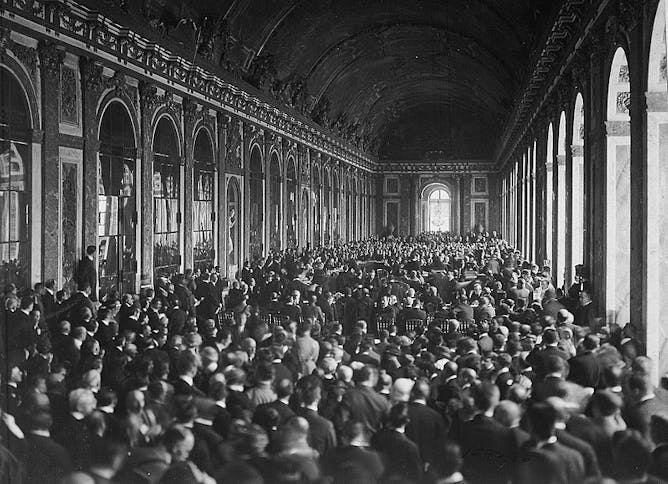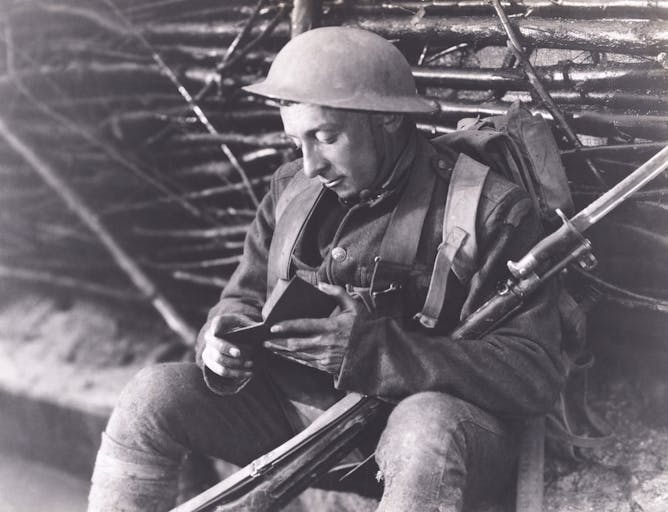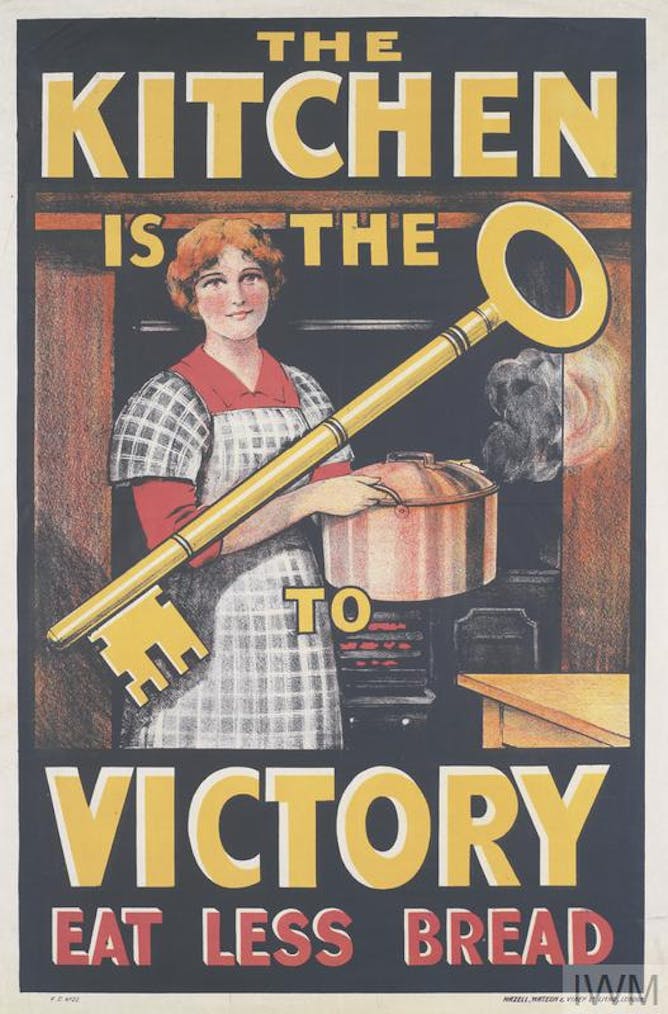|
|
|
Editor's note
|
|
It’s a time and date that are seared into our collective memory: 11am on November 11 1918, when the guns fell silent, bringing an end to four years of bitter conflict in which more than 16 million people were killed. For the past week, academic experts writing for The Conversation have been dissecting what World War I means: the social and political history as well as the scientific, cultural and personal legacies of the war that remain important in the 21st century.
None of the those who served are still with us. But their sacrifice, which is symbolised by the minute of silence observed each year on Remembrance Day, has especial poignancy 100 years on as they, and the world they fought to preserve, pass from living memory into history.
So, whether or not you are attending any of the memorial ceremonies today, please take some time to read some of the stories here, whether they are analysis, comment, discussion or moving accounts of ordinary people caught up in the tragic and destructive violence of what would come to be known, with sad irony, as the “Great War”.
|
Jonathan Este
Associate Editor, Arts + Culture Editor
|

|
|
|
|

Sending my love.
Agnes Kantaruk/Shutterstock
Sian Nicholas, Aberystwyth University
Stacks of treasured love letters can tell the intimate stories of war.
|

The delegations signing the Treaty of Versailles in the Hall of Mirrors.
Helen Johns Kirtland (1890-1979) and Lucian Swift Kirtland (died 1965), US National Archives
Steven Woodbridge, Kingston University
The Treaty of Versailles is often named as the main cause of World War II. But this is an overly simple explanation.
|

Thousands of university staff died in the conflict.
Shutterstock
John Taylor, Lancaster University
Estimates suggest that Oxford lost 19% of those who served, Cambridge 18%, and Manchester and Glasgow 17%.
|

Women were key to morale on the home front.
Imperial War Museum (IWM)
Karen Hunt, Keele University
Battling shortages and rising food and fuel prices, housewives played a vital part in Britain's first experience of 'total war'.
|
|
|
-
Sam Edwards, Manchester Metropolitan University
Red or white, it doesn't matter what colour your poppy is if you respect the sacrifice it represents.
-
Richard Lindsay, University of East London
Sphagnum moss made ideal field dressings for wounded soldiers.
-
Robert Kirby, Keele University
Medical advances were the only positive things to come out of the Great War.
-
Wim Van Mierlo, Loughborough University
Dead at 25, a week before World War I ended, Owen summed up the conflict's waste and futility.
-
Russell Deacon, University of South Wales
100 years ago David Lloyd George was the name on everyone's lips – so why has he largely been forgotten?
|
|
| |
Featured events
|

|
King's Manor, York, York, YO1 7EP, United Kingdom — University of York
|

|
St Helens Road, Ormskirk, Lancashire, L39 4QP, United Kingdom — Edge Hill University
|

|
Portland Building, Portland Street, Portsmouth, Hampshire, PO1 3AH, United Kingdom — University of Portsmouth
|

|
St Helens Road, Ormskirk, Lancashire, L39 4QP, United Kingdom — Edge Hill University
|
|
|
|
| |
| |
| |
| |
| |
|
|
|
|
|
|
|